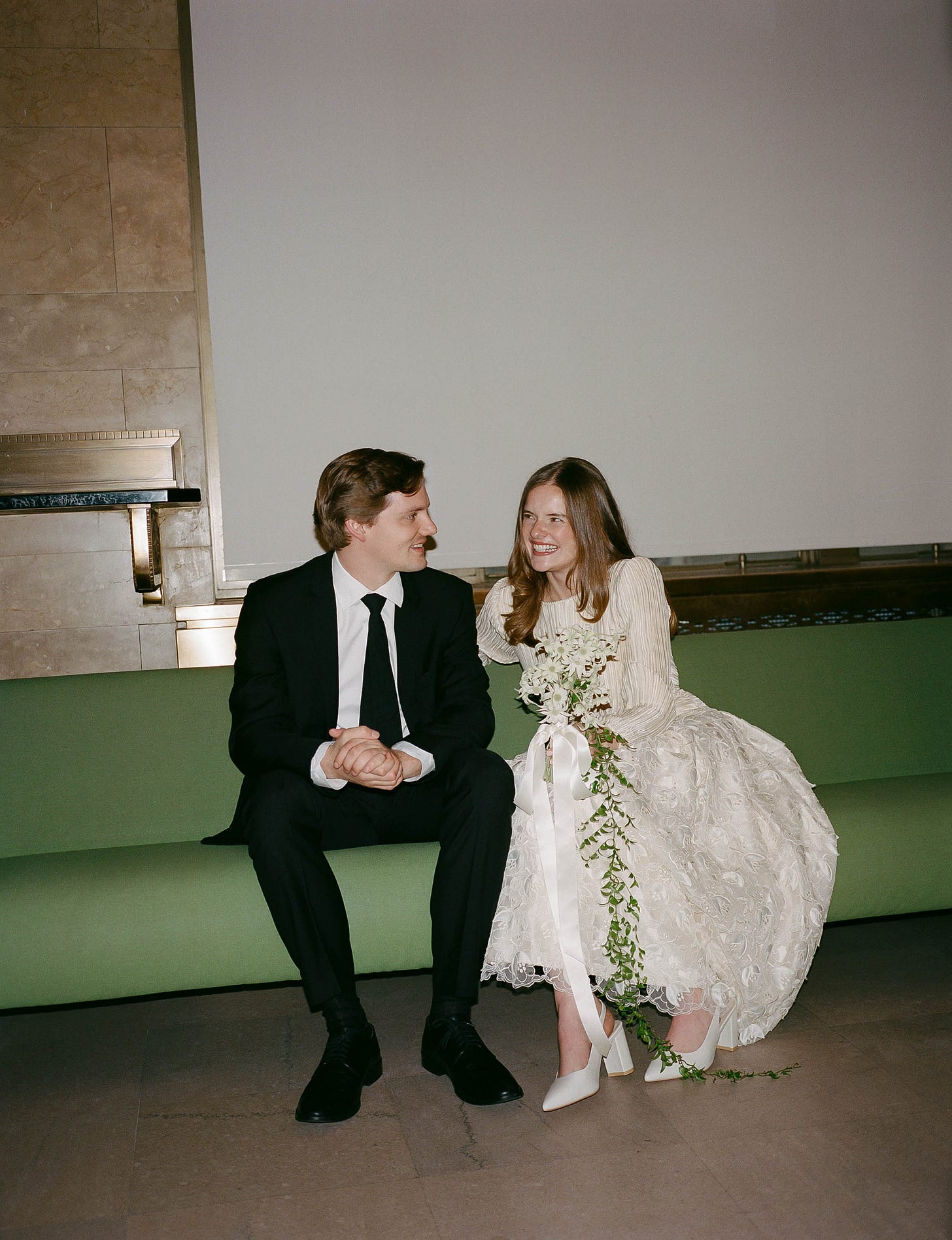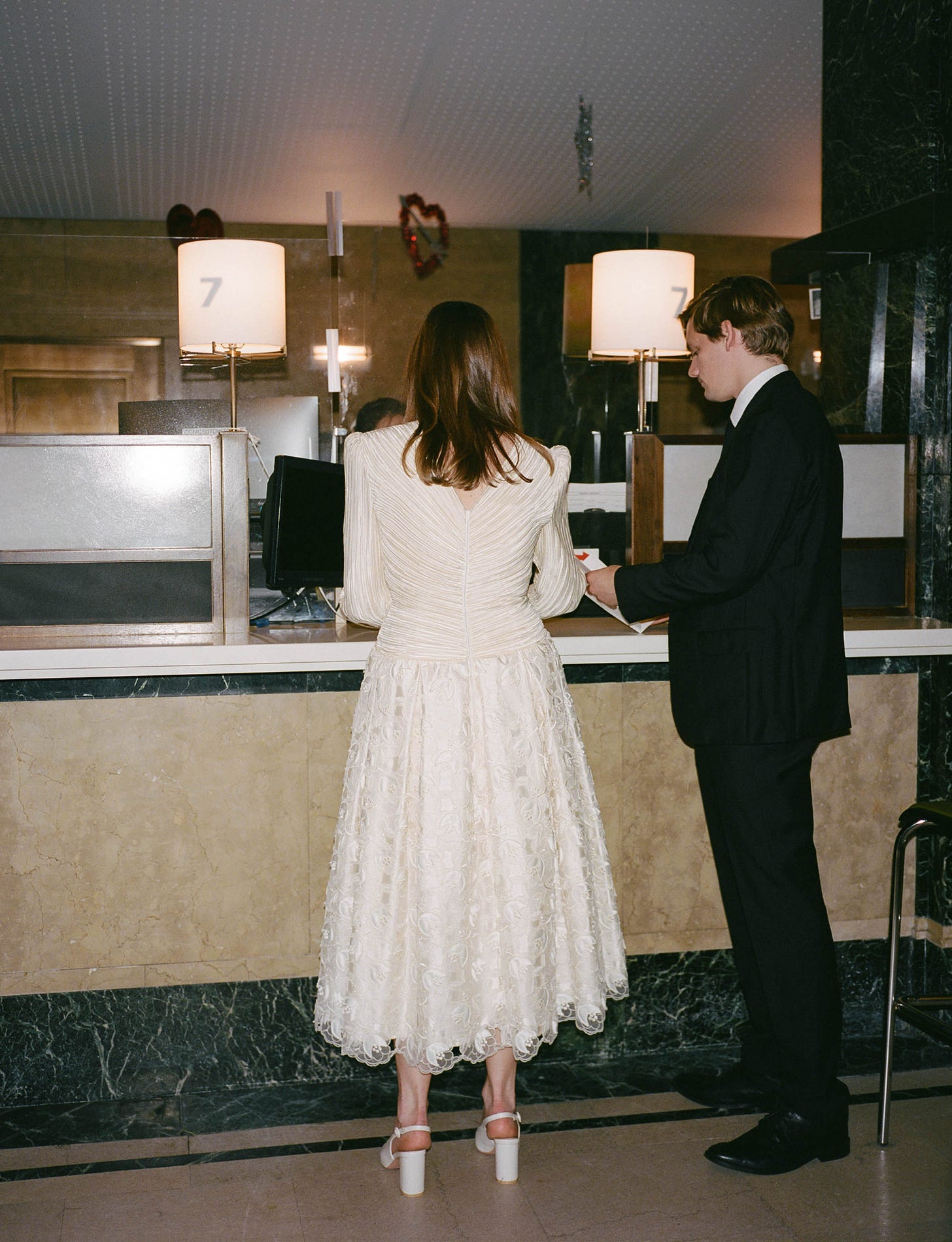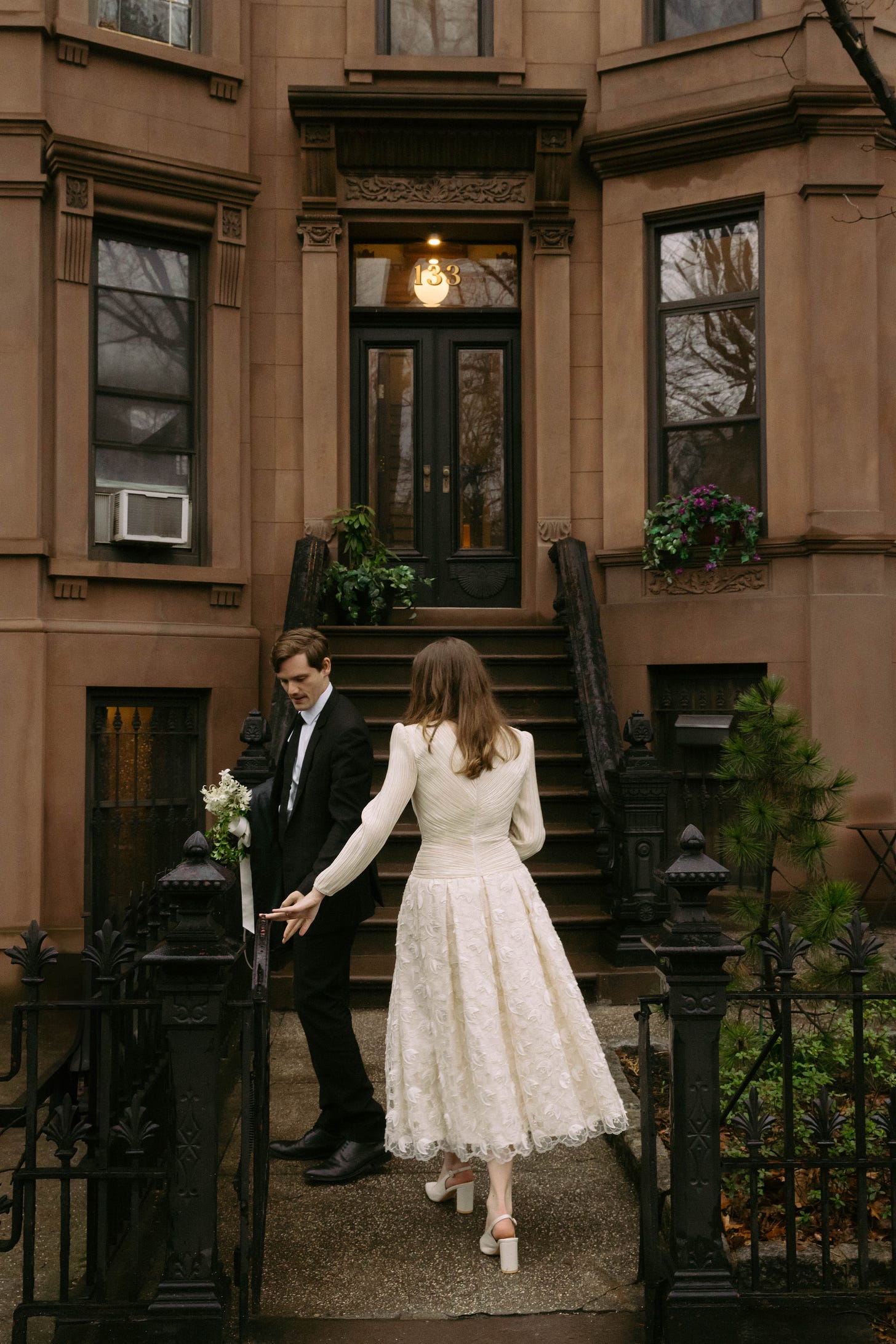do you like them? & do you want to be like them?
More important than liking your partner, is being happy to become more like them
When it comes to dating, the most important question isn’t one of attraction. It’s one of admiration. Do I want to be like you?
Recently, Gustavo and I were interviewed for NYT Mini Vows. One of the questions asked was: “When did you know you loved him?” It’s a good question. I knew I liked him the second I saw him. When he rushed into the cafe, cheeks flushed and hair mussed up like a Disney prince. In a navy peacoat, no less. He was dashing, charming, and lovely. Who wouldn’t like that? But the question was when I knew I loved him. That was a different moment. And the feeling wasn’t one of attraction, but one of admiration.
We were in Milan for a work dinner. My friends were walking in front of us and shrieked, sidestepping a pigeon on the ground. Gustavo stopped to kneel down beside the unmoving pigeon. It was obviously hurt and was going to get trampled if it couldn’t be moved. We stood there looking at the pigeon, my friends walking on in front of us. Gustavo was brainstorming how we might be able to help. Could we move the pigeon? Could we call someone? In the end, we didn’t want to risk hurting it further by moving it and left it where it was.
For the rest of the night, I could tell he was distracted. When I asked, he said he was thinking about the pigeon and how badly he felt that he couldn’t have helped it more. I knew then that I admired his kind spirit, how much he felt for animals, and how he wanted to help beings that couldn’t help themselves. That was the moment I knew I more than liked him. I loved him and I wanted to be more like him.
Now a freshly minted newlywed, I’d say that the only thing more important than liking your spouse, is that you want to be more like them. Maybe for some people, this is obvious. It’s widely understood you become more like the people you spend the most time with. We pick our friends, communities, and jobs with this in mind. But I didn’t ever think about that when it came to dating. At my worst, I was dating people I wouldn’t have even been friends with. When someone shows up late, strings you along, makes you beg them to be there for you—winning them over is actually a great loss. Maybe they like you, but do you want to be like them?
I’m not trying to make partnership sound like a productivity hack, but I do believe that it’s important to talk about the practical side of long-term partnership. When you marry someone, you are vowing to be with them, day in and day out for the next hopefully eighty plus years of your life. Nearly 30,000 days. Relationships should have romance, but also realism. You’re probably going to become more like each other than less.
I was dating looking for people I liked, but now I see that long-term partnership is about being with someone who naturally helps you change for the better. Before I realized this, there was a big difference between what I looked for when I was dating and what I wanted to have when I was married. How this was going to get reconciled, I wasn’t sure. I thought that I would need to go to premarital counseling or prepare in some particular way for this upshift in my relationship.
The reality is that nothing changed. I never had to have a moment of switching gears from dating Gustavo to marrying Gustavo, because he has treated me exactly how I hoped my future husband would treat me from the very moment we met. When you think about dating and when you think about marriage, in an ideal state, you don’t have to teach your partner how to treat you. Maybe they treat you so well that you rise to the occasion, which I do think has been my case. I’ve become a better communicator, more relaxed, and more family-focused in being with Gustavo.
When we first started dating, I was so afraid of losing myself in a relationship, because in the past I was with people I didn’t want to be like. I was so focused on clearly defining who I am and where I begin and what I care about. But with time, I’ve come to see that it’s less about needing to prove anything and more about building a shared world together.
I think of long-term partnership as two separate people finding each other and then molding together, forming new people in a shared life. Separate still yes, but together. A life that you could not have without this other person. You get a bit of them, they get a bit of you.
I am much more like Gustavo now than when we met two years ago. I did not think this would happen. I am a stubborn person, a particular person, a well-defined person with clear interests and tendencies and quirks. I thought that I would never change and even now, I’m surprised. There are obvious things—I eat meat now, I’ve watched more movies now than ever in my life, I’m learning to play tennis, and less obvious things—our senses of humor, vocabulary, and habits are more similar now. None of these things were suggested or encouraged by Gustavo, but rather a product of circumstance. You become more like the people you are around.
Of course, we are different. I love hosting dinner parties with twenty strangers. Gustavo would prefer to never make small talk again and spend as much time as possible with his family. I am always late, overcommitted, and stressed out. Gustavo refuses to rush. He does not have a status-seeking bone in this body. I have more than a sprinkle of people-pleaser tendencies in my design.
Our cultural background is also extremely different—I was born in Minnesota, he was born in Venezuela. But even if our culture is different and our interests are different, our values were exactly aligned. For example, Gustavo and I both cherish our family, believe in loyalty, and value financial responsibility. I can’t imagine how many arguments would come up if we weren’t aligned on these. In something as simple as deciding where we’ll go on vacation, we think about the last time we’ve seen our family and if the opportunity to visit them is there, we easily choose that because that’s what we genuinely want to do. There’s no negotiation or forcing.
If your values aren’t aligned and you’re unwilling to compromise, I do think this is where trouble can arise. Values underpin every decision that you make. If you don’t have shared morals and values, it’s like trying to speak the same language with different alphabets. That’s not to say that difference isn’t important and essential. No one wants to date a copy of themselves. But through spending time with someone, you build a world together rooted in what you both value.
I don’t imagine Gustavo will start hosting dinner parties, but he does go to them with me. I’m not about to become a tennis pro or a film fiend, but I do make an attempt. I think that’s what it’s about. Building a shared language and library of experiences together, not out of guilt or obligation, but out of interest and curiosity. I love spending time with Gustavo, so now I spend some time doing the things that he loves. It turns out that I’ve grown to love them too.
I have no doubt that love changes you. How could it not? The question is if it changes you for the better. I know it has for me.









So well written. You have such a clear voice on the page.
I love your love stories Sarah! So inspiring :)